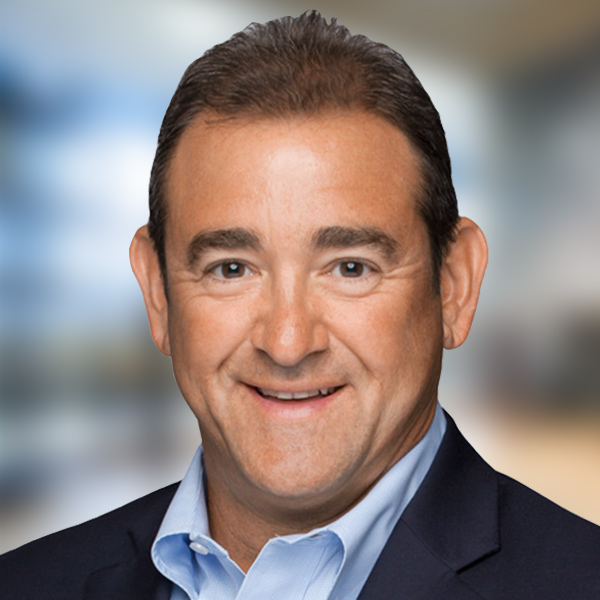It’s not a long drive from Morris Park Avenue to Wall Street, but few Einstein graduates go that route. Scott N. Braunstein, M.D. ’90, is a notable exception.
 Scott Braunstein, M.D.
Scott Braunstein, M.D.
Growing up in the Bronx, “I was a science kid,” he said. “My grandfather was a physician. In high school I volunteered with the local ambulance corps.” At Cornell, he majored in biology. When considering medical schools, he noted that “Einstein students were really happy, and the program was very hands-on with great leadership.” After graduating with the Class of 1990, Dr. Braunstein completed his training in internal medicine at New York-Presbyterian Hospital and taught at Einstein and Columbia University Medical Center. He joined Summit Medical Group of New Jersey, a large multi-specialty practice, in 1994.
Money Matters
“I never strayed from the path,” said Dr. Braunstein—that is, until the year 2000, which found him on Wall Street. Where did he turn? “At Summit, I had worked at two Columbia-affiliated hospitals and lectured my residents regularly,” he explained. “You could write your own lectures then, and the pharmaceutical industry got wind of my prowess. I started to do more lecturing on their products and saw, for the first time, the business side of medicine. And I enjoyed it as much as the practice of medicine.”
Dr. Braunstein left Summit to become a healthcare consultant at a New Jersey firm where he learned more about pharmaceuticals, biotechnology, and medical devices. He was then recruited by Wall Street’s Deutsche Bank, where he was in healthcare specialty sales and was exposed to equities and stocks. Next, on to JP Morgan, as an analyst in the pharmaceutical, biotech, and medical device industries, ultimately rising to portfolio manager and healthcare fund leader. “I spent much of my time attending medical meetings, to understand what the newest therapies would be and how they would affect clinical practice,” he said.
Dr. Braunstein joined the board of Pennsylvania-based Marinus Pharmaceuticals in 2018, became CEO in 2019, and was appointed board chair in 2022. “Bigger companies go after the multi-billion-dollar markets, leaving patients suffering from uncommon diseases without champions,” he said. Dr. Braunstein has chosen to use his finance experience and medical education to pioneer unique and challenging research initiatives into therapies for rare seizure disorders. “During my third and fourth years at Einstein, I spent time at Jacobi and came to appreciate the value of providing care for patients who didn’t have a lot of resources,” he said. He recalls two “incredibly compassionate role models” in the department of medicine, Kathleen Ward and Bert Bell.
A Therapy Emerges
Under Dr. Braunstein’s leadership, in 2022 Marinus received FDA approval for ganaxolone, the first and only treatment for seizures associated with cyclin-dependent kinase-like 5 (CDKL5) deficiency disorder (CDD). The cause of CDD is a mutation of the CDKL5 gene, which encodes proteins essential for normal brain function. Ganaxolone, brand name Ztalmy®, is a neurosteroid that modulates the brain’s GABAA receptors, which can help regulate excessive neuronal activity. CDD mostly affects females and brings early-onset, difficult-to-control seizures and severe neurodevelopmental impairment. Just 90 to 100 babies are born with CDD in the U.S. yearly.
Ganaxolone is now in Phase 3 studies for two other rare seizure disorders, both potentially life-threatening:
- Status epileptics (SE) results from abnormalities in the mechanisms that turn seizures on or off. About 35,000 SE patients in the U.S. have failed more than two therapies and still have seizures. Neurosteroids such as ganaxolone are already known to stop the seizing associated with nerve gas, “so you go where the science tells you to go,” said Dr. Braunstein.
- Tuberous sclerosis complex (TSC), a disorder caused by inherited mutations in the TSC1 or TSC2 gene, can cause non-malignant tumors in the brain and throughout the body. An estimated one in 6,000 American children are born each year with TSC, and about 90 percent with the disorder suffer from seizures.
Supporting Tomorrow’s Medical Thinkers
Dr. Braunstein recognizes the impact of his work at Marinus. But “what I’m probably more proud of has been teaching young, inexperienced, but very bright individuals how to be leaders in an organization,” he said. “They’ve done great things within our company, and many will do great things after our company.”
His support extends to Einstein students, who to supplement their tuition must pay for room and board, educational materials, and more. “That’s what led my wife and me to create the Lisa and Scott N. Braunstein, MD '90 Endowed Scholarship,” he said. “We think that helping students know that they can start their career a little less in debt will encourage smart and dedicated folks to go into the field.”
Dr. Braunstein himself is considering coming to campus to collaborate on early epilepsy research. “This has brought me back into the Einstein fold,” he said. He could not be more welcome.